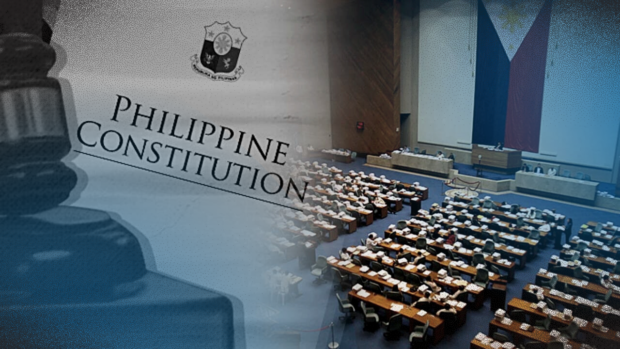MANILA, Philippines — Amid moves in the House of Representatives to push charter change (cha-cha), House Minority Leader Marcelino Libanan on Sunday urged the government’s fiscal managers and planners to take the “sensible approach” of conducting a “cost-benefit analysis” first.
“If we really want to tweak the economic provisions of the Constitution to draw in more foreign investors, then we would need a baseline comparison of cost and benefit,” Libanan said in a statement.
“This is the most sensible approach for us to ascertain whether the benefits outweigh the costs,” he added.
Political amendments
In particular, Libanan asked the National Economic and Development Authority to submit to Congress a detailed report on the projected benefits in terms of foreign direct investments that would come in per industry, the number of new jobs to be created, and the incremental tax revenues to be generated.
He also called on the Department of Budget Management to come up with reliable estimates on the cost of cha-cha.
The House started discussions on Feb. 22 on Resolution of Both Houses (RBH) No. 6, calling for the formation of a “hybrid constitutional convention” (con-con) to amend or revise the Constitution.
Cagayan de Oro Rep. Rufus Rodriguez, House Committee on Constitutional Amendments chair, said the primary thrust of cha-cha was to lift the Constitution’s restrictive economic provisions.
But during an interpellation, he also acknowledged that Con-con could take up political amendments, including a change in the form of government and term limits of elected officials.
Albay Rep. Edcel Lagman warned that Con-con, once convened as a constituent body, would have its own authority.
“Congress cannot control its agenda which could be open-ended. It could go to the extent of removing, extending, or changing term limits,” said the opposition lawmaker.
On Monday, Rodriguez’s panel is expected to deliberate on an accompanying bill to RBH No. 6 which would specify the composition of the hybrid Con-con and the qualifications of its delegates, who would both be elected and appointed.
Not a priority
Senate President Juan Miguel Zubiri earlier said that cha-cha would not be a priority in his chamber, while Sen. Robinhood Padilla filed RBH No. 3, calling for proposed amendments through a constituent assembly (con-ass).
“If we really want to pursue this, this is my plea to our beloved fellow legislators in the House… let’s agree to have con-ass,” Padilla, who heads the Senate committee on constitutional amendments, said in a radio interview on Sunday.
He said con-con would require a budget of at least P11 billion.
He also expressed hope that a plebiscite on cha-cha could be held alongside the scheduled barangay and Sangguniang Kabataan elections in October.
Stop voting for personalities
“It’s the people who will decide, not the president… When it comes to the Constitution, the president will just be on the sidelines. The decision belongs to the people,” he said.
Padilla has been pushing for charter change despite the lack of support from his colleagues.
President Marcos had also earlier said that amending the Constitution was not on his administration’s agenda.
Padilla said the President’s support was “not that important anyway,” since charter change did not prosper in the previous administration, despite then-President Rodrigo Duterte’s support.
“Nothing happened because it was ‘killed’ in the Senate,” Padilla said. “That’s why it’s no longer an issue if the president endorses this or not.”
He said he respected Zubiri’s stand that the chamber had no plans of prioritizing cha-cha.
“It’s just natural for [Zubiri] to say that,” Padilla said. “And if the people ask me why I’m pushing for this, it’s because this is my job…. I cannot sit on this.”
Party system
Padilla also said Filipinos should stop voting for personalities because of their popularity or wealth.
“If we really want to change politics in the Philippines, we must strengthen the party system,” he said in the same radio interview.
“Let’s stop voting [for candidates] because they are popular and rich. If we change our Constitution and improve the party [system], we will vote for the advocacies of the parties, not based on popularity,” said the action star-turned-politician, who topped the senatorial race last year with over 26 million votes.


